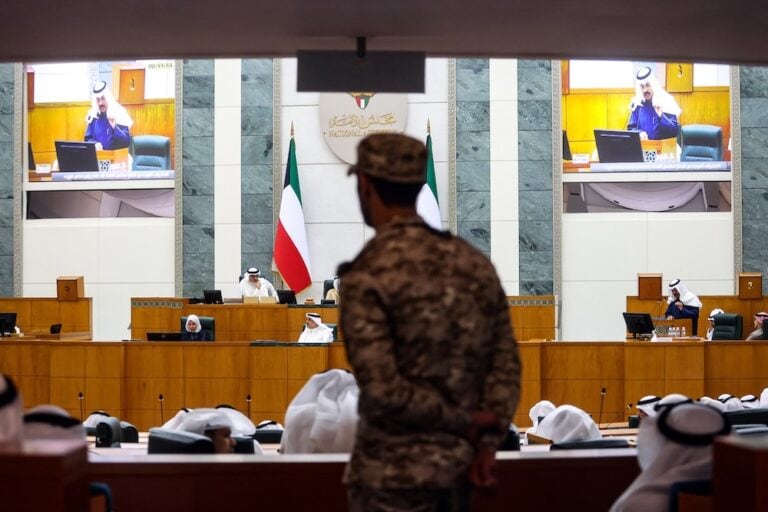(IFJ/IFEX) – The following is an IFJ media release: IFJ Calls for Media to Strengthen Training Work After Death of Television Journalist A distinguished French television journalist who died in a Kuwaiti hospital on December 22nd, a day after he was injured while covering military exercises in the Kuwaiti desert, was reportedly trying to warn […]
(IFJ/IFEX) – The following is an IFJ media release:
IFJ Calls for Media to Strengthen Training Work After Death of Television Journalist
A distinguished French television journalist who died in a Kuwaiti hospital on December 22nd, a day after he was injured while covering military exercises in the Kuwaiti desert, was reportedly trying to warn a colleague in danger when he was hit by a tank.
The incident prompted the International Federation of Journalists to renew calls to media organisations to ensure that all their staff are trained and prepared for dangerous assignments.
Patrick Bourrat, a veteran foreign correspondent for France’s TF1 television channel, died from wounds he sustained after the accident. According to diplomatic sources in the area, he was hit by the tank while trying to warn another media staff colleague who was in the path of the vehicle.
“This correspondent was an experienced veteran,” said Aidan White, IFJ General Secretary “and it appears that he died while trying to keep a colleague out of harm’s way. It is a terrible and tragic loss that highlights the dangers journalists face when they are reporting in conflict areas, even when it is covering so-called war games.”
Bourrat was one of scores of journalists and media staff covering the long-running Operation Desert Spring training exercise in Kuwait, which involves 12,000 United States troops. Much of the exercise involves live-fire training drills.
“This appears to have been a tragic accident, and one that probably could not have been avoided,” said White, “but it underlines the need for all media organisations to make sure their staff are trained and equipped for dangerous conditions.”
The IFJ believes that journalists who have been given widespread access to cover the military exercises need to be fully aware of the dangers they face.
“As pressure mounts in the region and the prospects of conflict grow, it is essential that journalists and media staff are prepared,” says the IFJ, which announced on Friday that some 67 journalists and media staff have been killed in 2002, many of them in conflict zones.


